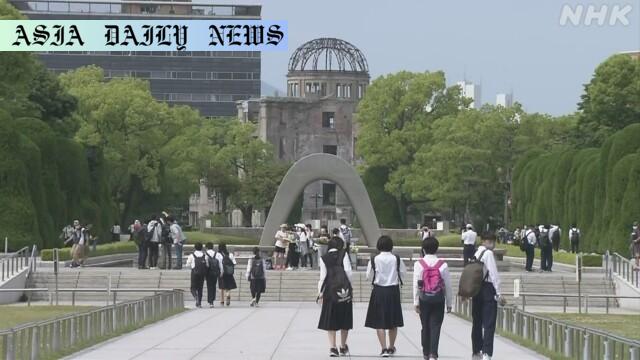Hibakusha: Japan’s welfare ministry urges survivors to share experiences for preservation and education ahead of 2025 milestone.
Hibakusha are encouraged to share firsthand accounts for preservation.
Japan’s welfare ministry plans to collect these accounts annually.
Collected stories to be displayed in Hiroshima and Nagasaki memorial halls.

Introduction
The Japanese government is taking an essential step toward preserving history by inviting all surviving hibakusha, or atomic bomb survivors, to share their experiences. With the 80th anniversary of the Hiroshima and Nagasaki bombings approaching in 2025, the Ministry of Health, Labour, and Welfare has initiated a project aimed at documenting these personal accounts. This initiative is a timely effort to safeguard the memories of a pivotal moment in history.
Background on the Hibakusha Population
The term “hibakusha” refers to the survivors of the atomic bombings that devastated Hiroshima and Nagasaki in 1945 during World War II. These individuals, now elderly with an average age of 85.58 as of last March, hold unique firsthand accounts of the horrors and resilience experienced in the aftermath of the bombings. The ministry has noted a declining hibakusha population, with a current estimate of 106,825 hibakusha holding certificates.
The Ministry’s Plan for Collecting Stories
The welfare ministry has decided to request accounts from all living hibakusha through survey forms distributed via prefectural authorities starting in April. Survivors will have the freedom to describe their experiences in their own words, covering the moments immediately following the bombings as well as their post-war struggles. While previous efforts over the decades have amassed over 130,000 responses, this initiative marks a shift to annual solicitations, reflecting the urgency of preserving these stories.
Display and Preservation of Stories
The collected accounts will serve a dual purpose: educating future generations and honoring the lives of survivors. The Ministry of Health, Labour, and Welfare plans to make the stories accessible by exhibiting them in Hiroshima and Nagasaki’s national peace memorial halls. This approach ensures that the memories of the hibakusha remain a living testament to the consequences of nuclear warfare while serving as a form of education and warning for the future.
The Role of Memory Amid Fading History
As time passes and memories fade with the loss of survivors, documenting these accounts has become more critical. The stories of the hibakusha are invaluable not only for historical preservation but also as a means of fostering compassion and understanding globally. By taking this step, Japan ensures that the voices of hibakusha are not lost and that future generations can learn about the devastating impact of nuclear weapons from a deeply personal perspective.
Global Implications
This initiative carries lessons beyond Japan. The preservation of hibakusha accounts resonates with global efforts to promote peace and prevent nuclear warfare. As a symbol of resilience and human strength, these stories highlight the dire need for nuclear disarmament and underscore the human cost of war. By sharing these accounts internationally, Japan contributes to the collective memory of humanity’s past mistakes and the ongoing pursuit of global harmony.
Conclusion
Japan’s call to hibakusha to share their experiences is an invaluable initiative that bridges the gap between past and future. By creating a repository of personal memories, the welfare ministry is not only honoring the survivors but also providing the world with a profound resource for understanding the impact of nuclear war. As the 80th anniversary of Hiroshima and Nagasaki approaches, this project serves as a testament to the enduring power of memory in shaping a better tomorrow.



Commentary
The Importance of Documenting Hibakusha Stories
Japan’s decision to encourage hibakusha to document their experiences is a meaningful step in preserving history. Amid ongoing advancements in society and technology, there is often a risk of losing touch with the painful lessons of the past. By actively soliciting their accounts, we ensure that future generations will have a firsthand view of the devastation caused by nuclear weapons. These testimonies are essential for fostering global accountability and advocating for peace.
A Global Responsibility
While this initiative is rooted in Japan, its implications extend worldwide. The memory of Hiroshima and Nagasaki symbolizes the catastrophic consequences of nuclear warfare, and preserving these stories is vital for global education. It is not just a Japanese responsibility but an international one to learn from such histories to build a peaceful future. Recognizing and understanding these sacrifices can inspire efforts for nuclear disarmament and the prevention of conflicts.
Timeliness of the Initiative
With the average age of survivors now over 85, this initiative arrives at a critical time. As the world moves further away from the events of 1945, there is an urgency to gather and preserve these accounts. The ministry’s decision to conduct this effort annually highlights its dedication to ensuring that stories of survival and resilience endure as a part of the collective human narrative. The initiative is both timely and invaluable in its implementation.